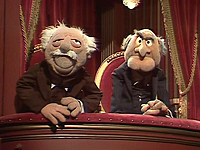Sexually incontinent, self-centred, spineless and shameless - what’s not to like about Harry Flashman, George MacDonald Fraser’s timeless comic character? This is the first book, originally published in 1969, and it began one of the greatest series of historical fiction in the English language. The Hornblowers and Sharpes have their place, but heroic types can be dreadful bores at times. Give me a promiscuous, drunken coward nine times out ten; the tenth time being when it was my hide or Flashman’s and I can be sure he’d sell me into slavery to protect his own skin.
This first novel in the series begins where the fictional caddish bully of “Tom Brown’s Schooldays” is left by Thomas Hughes - expelled from Rugby School for drunkenness. It takes him to a commission in the army, unwanted marriage to the pretty and faux-naïf daughter of a Scottish cotton magnate, a passage to India, and from there involvement in the last official war Britain lost - the First Afghan War of 1839-42. History records only one survivor from the party that retreated from Kabul, but we have Fraser to thank for the tale of the otherwise unrecorded second who left many better men and several wronged women behind.
My own novel, “Milligan and the Samurai Rebels”, has two main sources of literary inspiration - the diaries of Ernest Satow for their history of 1860s Japan from a British perspective; and the Flashman novels for their demonstration that serious history does not have to be po-faced. Fraser is meticulous in his research, with Flashman inserted effortlessly and entertainingly into the gaps that exist in any account of real events. This book and its sequels are great examples of how to research and write historical fiction, and shame on lazy writers who are simply “inspired” by a period and then change established characters and events to suit their own purposes.
A phenomenal achievement from a writer who was serious about his history while equally serious about his mission to entertain.
This first novel in the series begins where the fictional caddish bully of “Tom Brown’s Schooldays” is left by Thomas Hughes - expelled from Rugby School for drunkenness. It takes him to a commission in the army, unwanted marriage to the pretty and faux-naïf daughter of a Scottish cotton magnate, a passage to India, and from there involvement in the last official war Britain lost - the First Afghan War of 1839-42. History records only one survivor from the party that retreated from Kabul, but we have Fraser to thank for the tale of the otherwise unrecorded second who left many better men and several wronged women behind.
My own novel, “Milligan and the Samurai Rebels”, has two main sources of literary inspiration - the diaries of Ernest Satow for their history of 1860s Japan from a British perspective; and the Flashman novels for their demonstration that serious history does not have to be po-faced. Fraser is meticulous in his research, with Flashman inserted effortlessly and entertainingly into the gaps that exist in any account of real events. This book and its sequels are great examples of how to research and write historical fiction, and shame on lazy writers who are simply “inspired” by a period and then change established characters and events to suit their own purposes.
A phenomenal achievement from a writer who was serious about his history while equally serious about his mission to entertain.

 RSSフィード
RSSフィード
